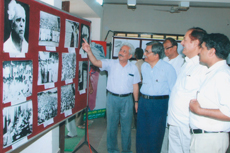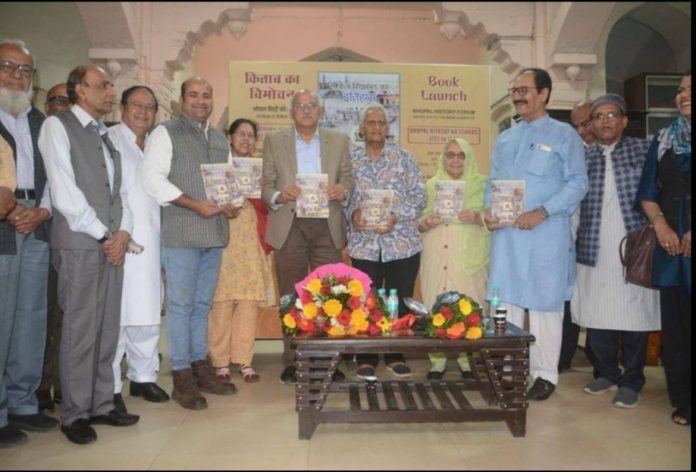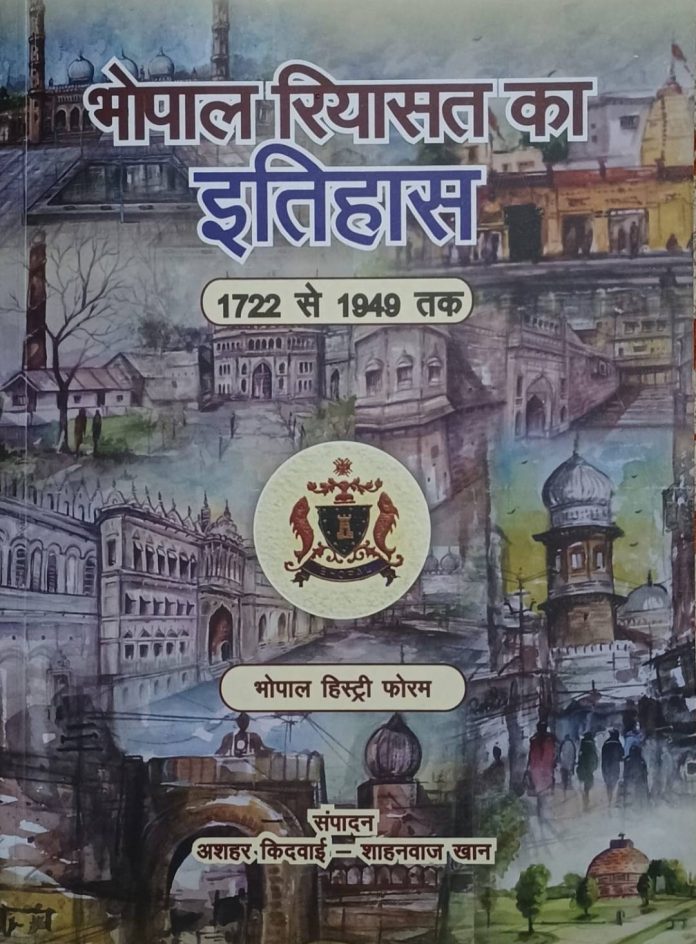Bhopal, MADHYA PRADESH :

Bhopal:
On the occasion of International Day an exhibition on the life and works of Khan Shakir Ali Khan, the great freedom fighter of Bhopal popularly known as Sher-e-Bhopal, was inaugurated in the premises of the regional office of the National Archives of India here on Wednesday.
R. K. Shrivastava, the Administrative Officer Indira Gandhi Rashtriya Manav Sangarahalaya, inaugurated the exhibition by cutting the traditional red-ribbon.
Shahnawaz Khan, nephew of late Shakir Ali, senior journalist Shailendra Shelly along with NAI’s Archivists V. K. Juneja, who is office in-charge NAI regional office, and Muzaffar-e-Islam were present on the occasion. The exhibition is divided into five phases with documents, letters, photographs etc.
Shrivastava speaking on the occasion said that late Shakir Sahab demanded respect from one and all alike for his selfless service towards society. He said Shakir Sahab was symbol of communal harmony as both Hindus and Muslims respected and loved him for his untiring efforts towards poor people especially the labour class.
Shahnawaz Khan revealed that the title of Sher-e-Bhopal was not granted to his uncle Shakir Ali by any government or Nawab of Bhopal but by the common man for his selfless efforts to better their lot.
He was a big hurdle for the communal forces who wanted to engineer Muslim-Hindu riots for their vested interests. When some people wanted to demolish a Jain Mandir in Chowk area of Bhopal he stood at the door of the temple saying demolition could only take place before his dead body and those who had converged for the job had to retreat.
He complimented National Archives for organising such an exhibition to honour the mass leader of his time. He said he was happy to hand over the documents and photographs of his uncle which has been put to very good use.
Shailendra Shelly while paying glowing tributes to the personality of Shakir Ali lamented that Bhopal Municipal Corporation which had announced an award in the name of the great leader about a decade back never implemented it. He said BMC could still honour implement its own announcement. The veteran leader was the voice of the labour class
Juneja conducted the proceedings while Muzaffar-e-Islam proposed vote of thanks. The week long exhibition will close down on May 24. It will remain daily open for public from 10.30 am to 5.30 am in NAI regional office near Polytechnic square.
Khan Shakir Ali Khan (1904-1978) is a person who was more famous by his title Sher-e-Bhopal than his name. He was really a leader of the masses. Throughout in his life he rendered his services to the people, the down-trodden and the poor. He was a true servant of the society. He served both the society and polity of Bhopal. During the time of Nawab, he organized the Labourers of mills and factories under different organizations and Unions and fought for their rights.
To raise their voice many organs and newspapers were published. The most famous was Subh-i-Watan. Unfortunately all such papers were banned. It was not possible for the Government of the day to tolerate such a selfless leader and leave him free to criticize the Government or to fight with the Government on petty issues of rights and liberty of the labourers or to represent such a section of society which has been kept deprived by the destiny himself. The Government thought it right to keep such a mass leader behind the bars most of the time. He was publicly humiliated and even handcuffed like an ordinary man or a thief. He was such a strong man that he did not stop his mission and day by day became stronger and stronger .
Khan Shakir Ali Khan was also a man behind the formation of Praja Mandal besides other at least 15 Unions of Mill and factory labourers. Shakir Ali Khan considered these Unions the real source of strength and inspiration. At one times he was alone on the question of merger of Bhopal with the Union Territory. It was his movement which compelled Nawab Hamidullah Khan, the last ruler of Bhopal state, to hold meetings with the Central Leaders and conclude terms for the merger of Bhopal with the Union Territory. First it was an interim arrangement under which the erstwhile Bhopal state was considered as Part C State for five years and finally it became part of Madhya Pradesh. He is also remembered for his leading role in making Bhopal, the capital of M.P. State. How was he popular that can be judged as he remained a member of Legislative Assembly for consecutive four terms.
On the occasion of International Museum Day, the National Archives of India remembered this great leader by exhibiting his photographs, letters and his own writings.
(pervezbari@eth.net)
source: http://www.ummid.com / Ummid.com / Home> Life & Style / by Pervez Bari /May 20th, 2011










